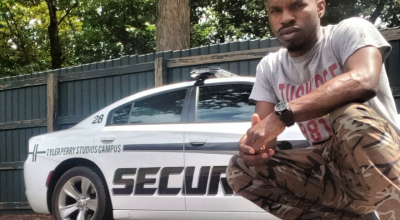

The Tennessee court system is rotten to the core because it rejects constitutional rights of the people, ignores black-letter law, fails to correct continuing abuses at the county level, maintains legal fictions that abuse the people and offers extraordinary grace to members of the bar, whose members write the laws as legislators then dun and confound clients and defendants in court to maintain their fees.
By David Tulis / NoogaRadio 92.7 FM
But the judges want Tennesseans to know they care about racism.
We have reported for more than five years on persistent injustices that overturn the rights of the people and deny them redress of grievances, and so this July 4 holiday wish for some relief from the bitter catalogue of our archive.
The supreme court issues a statement in which it claims to have a commitment to equal justice. Its cites the Latin phrase that marks the seal of the court system, “Let justice be done, though the heavens fall.”
The heavens have fallen, and justice is not being done, particularly with rejection of the most important appeal in 80 years having been ignored in 2017 (State of Tennessee vs. Arthur J. Hirsch), touching on longstanding Jim Crow use of the state trucking statute against private users of the road.
The justices’ statement June 25 is two faced. In reference to the CV19 panic, the judges say “we sought to navigate for the first time what “open courts” look like during a massive health crisis.” The courts are not open, and family members, pastors, witnesses, reporters are kept out of courts, and trials are delayed in defiance of speedy trial rights.
In reference to police violence across the country, the court masks responsibility for these killings and maimings. Police violence comes from state actors, whom they have given the pre-crime absolution called qualified immunity. “A series of tragic deaths have reminded us that racism and injustice remain a mortal threat to the lives of Black people in our country,” the judges say. “Racism still exists and has no place in our society.”
They turn to their oaths and the high moral claims of justice upon them..
Upon entering service in the judiciary, we swore to uphold the constitutions of the State of Tennessee and the United States. Thus, it is our moral obligation and our sworn duty to ensure that the people of Tennessee receive equal protection of its laws. Justice must be for all.
They say they “have provided training to Tennessee judges on implicit bias” and run an “access to justice” commission. “We are directing the commission to establish a new initiative to identify and eliminate barriers to racial and ethnic fairness and justice.”
We are striving toward a better tomorrow, and know there is much more work to do. Change is needed and only can happen through listening, as well as valuing and respecting a myriad of voices with different perspectives and views. Our commitment today is another step in what will be a long, sustained journey.

Constitution overturned left, right
Insofar as the government deprives the people of a free state, and binds them in a way that they are no longer a free people served by a just magistrate, it appears time to evaluate the extent of the breach against the people, and to decide in the next year how moderate the remedies might be in obtaining relief.
The leading breach is the extraordinary violation of due process and abuse of the people in the state’s illicit response to a virus, CV-19. Gov. Bill Lee and his cronies in the counties have locked the people into their homes without conviction of a crime, deprived hundreds of thousands of innocents of their livelihoods for no crime having been proven, destroyed trade and amity and service, imposed isolation on the elderly, done violence to the church and to religion, extirpated private gatherings by fiat and imposed on the people administrative controls that are advisories that are turned into laws in every shop and factory by a compliant and good people, too respectful to openly defy any tyrant. The CV-19 state revolution, by a combination of state, county and city government — is the most egregious violation.
➤ The leading case in the past 80 years to defy tyranny and bring relief against African-Americans is State of Tennessee v. Arthur Jay Hirsch, which sought to overturn to longstanding abuses of blacks and everyone else. It challenged commercial government claims against the right of communication by private travel on the people’s right of way in their cars and trucks. A secondary claim in Mr. Hirsch’s petition was his challenge to the anti-Negro law in Tennessee called the “intent to go armed” statute, which is unconstitutionally vague and which operates to create a total ban on the possession or ownership of weapons in the state, with the government granting defenses to gun or knife. The law has a racist origin against blacks. The court refused to grant certiorari to hear a well-crafted appeal on which we have reported in detail.
➤ A Judge in Davidson County on May 15 ruled against a petition for a temporary restraining order against Gov. Bill Lee’s penal lockdown of 6.8 million Tennesseans, boldly ignoring the jagged edge of a constitutional provision written with today’s viral novelties in mind. Judge Russell T. Perkins rules against a plea by Roller Express rink operator Perry Allen who says he is suffering tremendous losses by being ordered to stay shut down in the CV19 panic. His 14-page ruling does not speak a lick about the constitutionally guaranteed rights of the people, and he favors the state’s interest in creating the worst economic depression in state history.
➤ The court has allowed Gov. Bill Lee to play hardball in attempts by reformer John Gentry to gain a hearing for part of his grievance on behalf of the people, namely a typo in the state’s published version of the constitution which deletes a constitutional right.
➤ The justices allowed judges to hold positions of trust in other branches of government and allow corrupt judges to remain on the bench. Not one judge has been impeached in decades and no judges have been removed by a judicial ethics commission, though abuses are rampant. The violence against due process are particularly pungent in so-called family court, where custody of children is fought over by three parties — moms, dads and child-traffickers on the state payroll.
➤ The judges do not have a high regard for constitutional rights in the CV-19 revolution by public servants. Neither do attorneys, who serve the judicial branch, have been largely silent about CV-19 oppression. Weeks after the shutdown, the first lawyers to pop up with a defense of the constitution were district attorneys, who said the Gov. Lee edicts are unenforceable.
➤ Attorneys are members of the judicial branch, and court officers. They have remained silent in the CV-19 coup against the constitution and the suppression of myriad liberties since mid-March.
➤ The judges have refused to respond to press inquiries about the state’s unconstitutional grand jury system, marred by partiality, favoritism and control by district attorneys. The question put to them is: Can the public have confidence in the judicial system? Seems not. While the county commission muddles about to find “justice” against sheriffing abuses, the true government spoiler — the grand jury — is shut down, and when it operates it is compliantly pro-state and pro-status quo. Grand jury foreman Hugh Moore refuses to obey the law when petition is made to make an appearance before the grand jury’s gatekeepers.
Courts are closed for now
➤ The closure of the state’s courts is a violation of the rights of the people to have open court and for any observer, family member, citizen, bored person, reporter, pastor, supporter to attend at will, promiscuously and without having to ask permission. “Civilized societies withdraw both from the victim and the vigilante the enforcement of criminal laws, but they cannot erase from people’s consciousness the fundamental, natural yearning to see justice done—or even the urge for retribution,” says the U.S. supreme court at Richmond Newspapers, Inc. v. Virginia, 448 U.S. 555, 571–72, 100 S. Ct. 2814, 2824–25, 65 L. Ed. 2d 973 (1980).
The crucial prophylactic aspects of the administration of justice cannot function in the dark; no community catharsis can occur if justice is “done in a corner [or] in any covert manner.” Supra, at 2823. It is not enough to say that results alone will satiate the natural community desire for “satisfaction.” A result considered untoward may undermine public confidence, and where the trial has been concealed from public view an unexpected outcome can cause a reaction that the system at best has failed and at worst has been corrupted. To work effectively, it is important that society’s criminal *572 process “satisfy the appearance of justice,” Offutt v. United States, 348 U.S. 11, 14, 75 S.Ct. 11, 13, 99 L.Ed. 11 (1954), and the appearance of justice can best be provided by allowing people to observe it.
Looking back, we see that when the ancient “town meeting” form of trial became too cumbersome, 12 members of the community were delegated to act as its surrogates, **2825 but the community did not surrender its right to observe the conduct of trials. The people retained a “right of visitation” which enabled them to satisfy themselves that justice was in fact being done.
People in an open society do not demand infallibility from their institutions, but it is difficult for them to accept what they are prohibited from observing. When a criminal trial is conducted in the open, there is at least an opportunity both for understanding the system in general and its workings in a particular case:
“The educative effect of public attendance is a material advantage. Not only is respect for the law increased and intelligent acquaintance acquired with the methods of government, but a strong confidence in judicial remedies is secured which could never be inspired by a system of secrecy.” 6 Wigmore, supra, at 438. See also 1 J. Bentham, Rationale of Judicial Evidence, at 525.
➤ One good thing: Appellate judges have properly construed the statute giving exceptions against the right to be arrested under warrant. But there has been no effort by local judges to correct abuses of Tenn. Code Ann. 40-7-103, arrest by officer without warrant. No lawyer, evidently, has brought the court’s attention to the problem of general warrants.
The grand jury doesn’t care. Local judges don’t care. The Supreme Court doesn’t care.
Not much left to celebrate on July 4.


